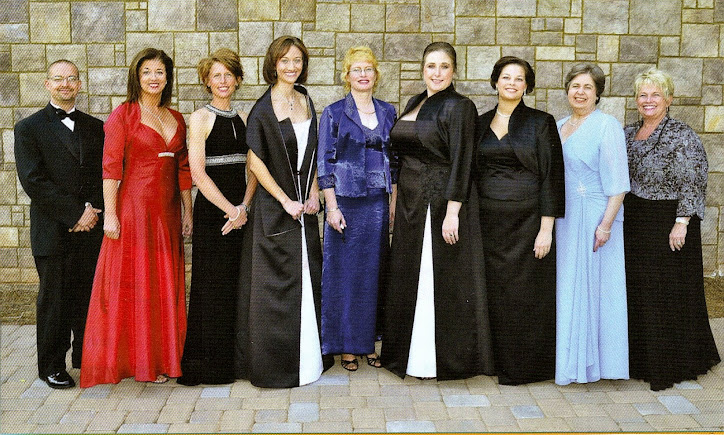Please welcome the North Central Regional Teacher of the Year Paige Elliott, an English teacher at Fuquay Varina High School. Her blog on her first week of school is beautifully written and reminds me of the responsibility that our high school teachers have to motivate those who may have had enough of school by this point (and to challenge those who are hungry for more.) We are lucky to have teachers like Paige in our schools!
Click . . . Click . . . Click.
FADE IN: Close up: The bottom half of a black skirt, dress shoes, walking across industrial linoleum grey tile with the chrome legs of student desks in the background. FADE OUT.
Grrnnn. Ghhhrrnnm.
FADE IN: Close up: Electric pencil sharpener grinding away the fresh new flesh of a bright yellow pencil. Hand pulls pencil away and produces a masterpiece of wood sculpted and blended into lead ending with a point finer than that of a pin. FADE OUT.
Bbbring!
FADE IN: Medium shot: An average looking woman in business style dress stands in the metal and cinderblock doorway wringing her hands. FADE OUT.
FADE IN: Close up: Two hands, one black one white, shake. An enthusiastic voice is heard: “Welcome to Senior English.”
SHOT WIDENS: Students trickle into a classroom shaking hands with a teacher who greets them at the door. Some students hesitate, unsure how to react and not understanding why the teacher has her hand reaching for theirs. A young man unreservedly smiles, nods his head, and says, “What up, Mrs. Elliott?” A young girl cautiously offers her hand in an awkward position and limp wrist as she avoids eye contact. Students curiously read directions on the board and begin crowding around a posted seating chart. Mumbling and squeals can be heard. FADE OUT.
FADE IN: The same class, several minutes later. One student, Daniel, appears to have settled well into his seat, slouching, and flirting with sleep. Doris sits attentively nodding with each word the teacher says as basic rules, explanations, and expectations are reviewed. Sally is asking about the bathroom policy and Ross is turned around talking with Misty about her summer. Vince, a veteran of the senior class, carries himself with an air of superiority and wisdom, smirks at the teacher and asks if he will have to read the same thing that he read last year in Senior English. Madison then inquires in an arguably complaining tone if there will be much writing in the course. FADE OUT.
FADE IN: Close up: Faded purple and black ink stains mark the tips of fingers. The fingers rise up to brush back what was once earlier shaped and styled but now frizzy hair. SHOT WIDENS: The same teacher we saw earlier now sits in a small room of eleven students. Her lipstick gone and eye liner now faded, she tugs at her blouse that no longer feels sharp and classy, but now tired and worn. But her voice . . . her voice is still fresh and full of excitement. “All of you will pass your English I End-of-Course. I don’t care what happened last year.” As she finishes up a sentence, a tall and formidable assistant principal brings in another student, Francois, who has been lost . . . since last year
CUT.
When I was asked to share my stories of the beginning of my year, I thought a screenplay would be an excellent way to capture the moment and present a sample of my story. However, as most English teachers will share with you, well-written stories have a beginning, middle, and end. So I have a problem: I only know the beginning.
Each day the story unravels. I learn that Francois (fictitious name, of course), the student who was lost last year, is painfully struggling through this year . . . already. He says he has no future and he will be dropping out. The story I have heard of his home situation challenges me to hold back tears when we speak. Vince has written me a letter explaining his intention to go to college. His behavior in class has been impeccable. All of my students readily shake my hand now. I haven’t seen Doris since the first day of school. Jesse just joined my class today. He decided six days in that he wants to graduate. Several students show life in their eyes and interest in class discussion. I suspect they have bright futures ahead; seventeen years-old and freedom around the corner with few visible stumbling blocks – their eyes are full of life because they see the bright future that is distant beyond me standing in front of them. I don’t know Ross very well yet, and there are many others who have not yet earned a leading role in my dream screenplay.
No, I can’t write the story yet because I don’t know the ending. I don’t even know the true beginnings; they happened long before any child walked into my classroom. What I do know is that effective teachers build relationships with their students. They allow the stories to form and transform before them, rather than writing the story of a student before it happens.
Maybe . . . if I work hard enough and care hard enough, I can change the ending for some students. I hope I can, for Francois’ sake. We all need to believe, even if it’s just a little, in fairy tale endings.
Moving Day
13 years ago

No comments:
Post a Comment